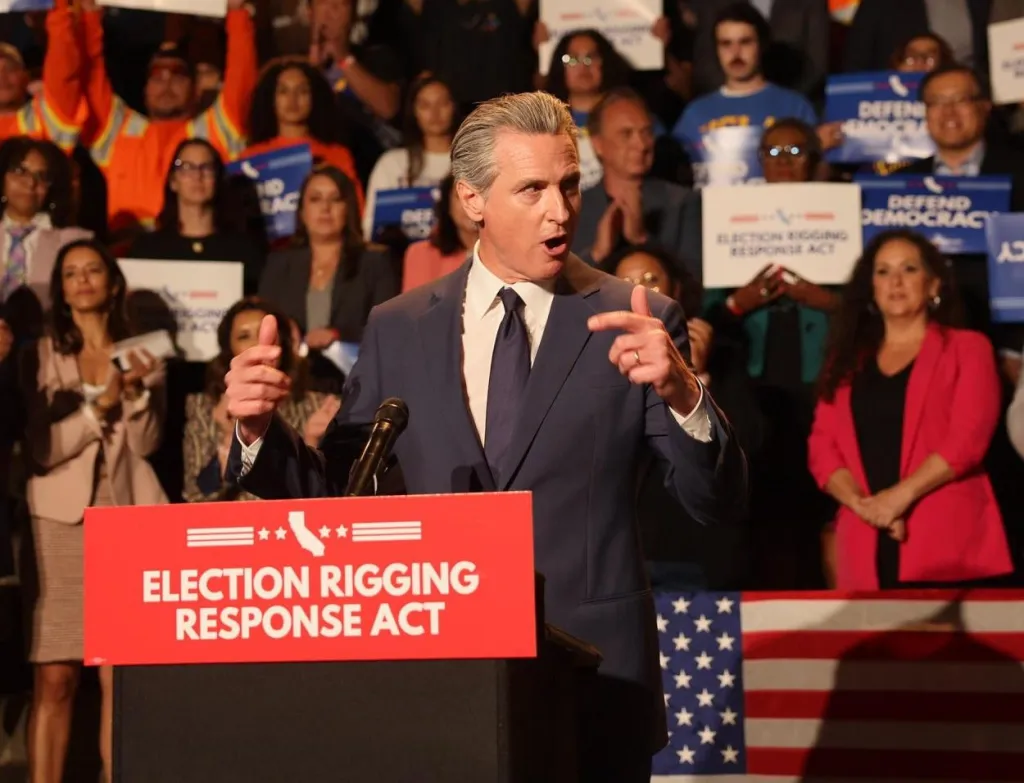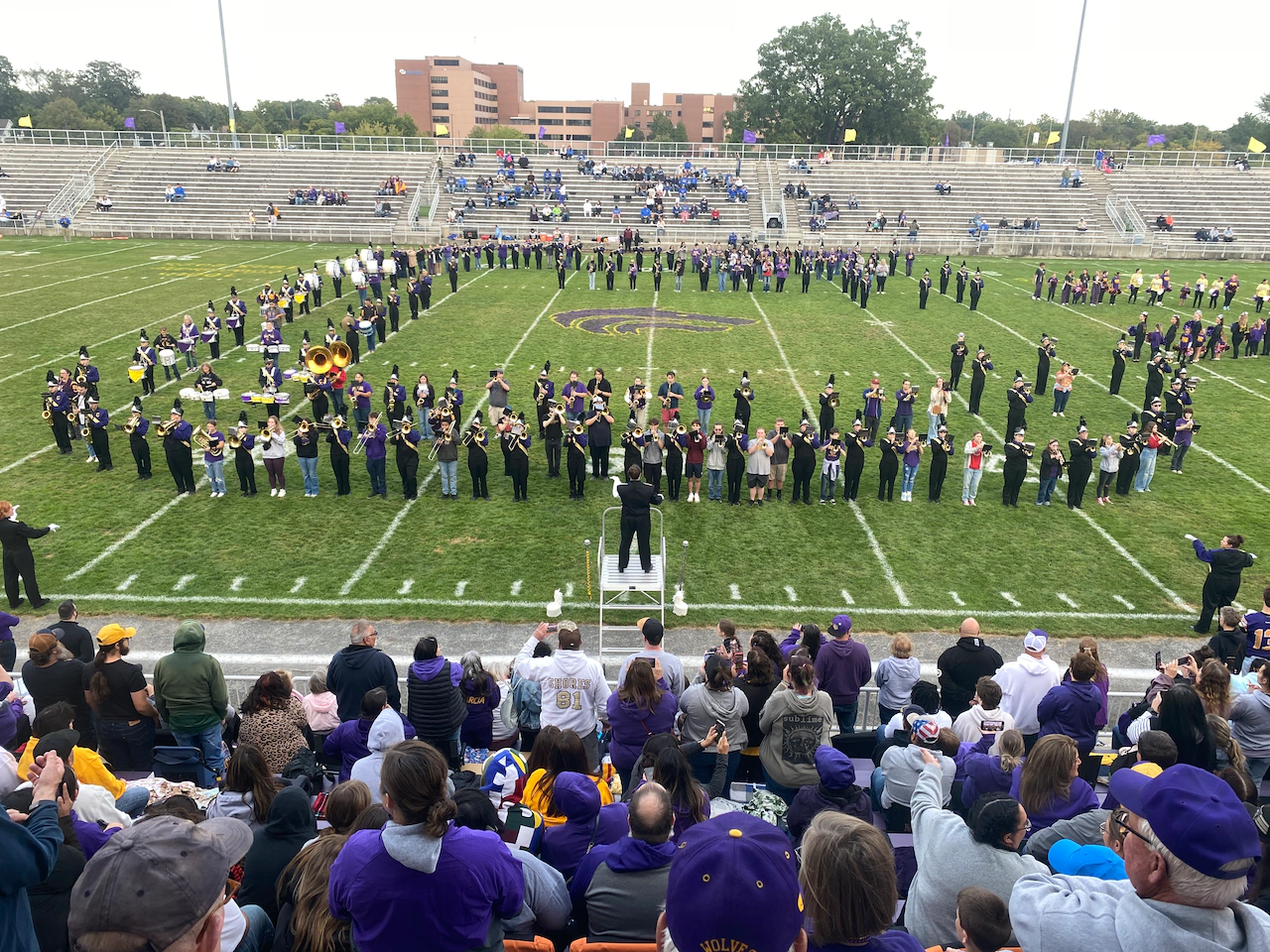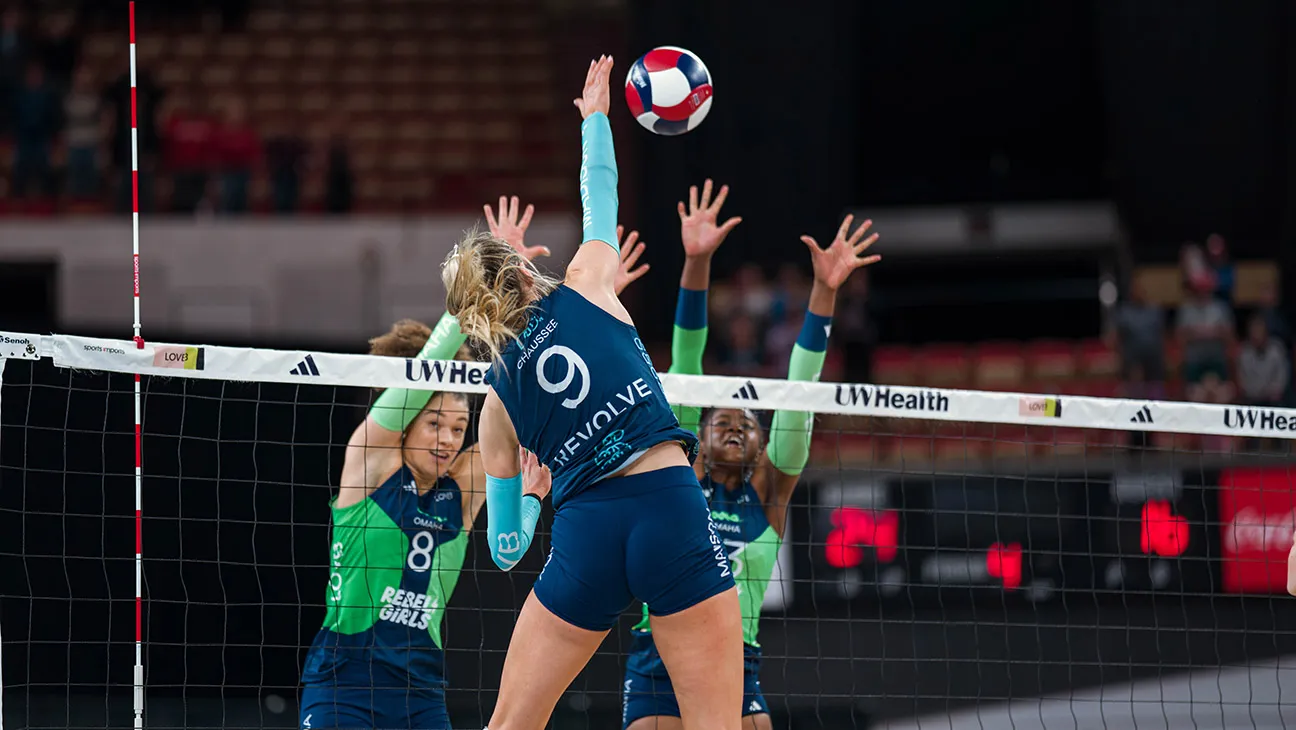
With less than 40 days until voters decide the fate of Gov. Gavin Newsom’s plan to redraw California’s election map, major fundraisers on both sides of the ballot measure have raised more than $112 million in total, drawing political donations from Silicon Valley billionaires as well as Republican and Democratic leaders in Washington, D.C.
So far, Newsom’s Yes campaign has outraised its two main fundraising opponents 2-to-1. Proposition 50 supporters reported hundreds of thousands of individual donations, while the No camp has relied primarily on a single wealthy donor.
Newsom’s gerrymandering proposal explicitly seeks to flip five seats held by California Republicans in the U.S. House of Representatives by persuading voters to approve new maps tilted in favor of his Democratic Party. The goal is to counter a similar move by GOP lawmakers in Texas at the direction of President Donald Trump ahead of next year’s midterm elections.
“The outcome could very well determine control of the House of Representatives in 2026,” said Jack Pitney, a political science professor at Claremont McKenna College. “The presence of big money indicates big money donors understand those stakes.”
As the Nov. 4 election draws nearer, the Yes and No campaigns are using that cash to flood voters’ social media feeds, television screens and mailboxes with a barrage of political ads.
This week, popular New York Democratic Rep. Alexandria Ocasio-Cortez appeared in ads in both English and Spanish imploring Californians to support the measure, which would allow Democrats to temporarily draw gerrymandered maps in response to what they describe as a “power grab” by Trump and his Texas allies. Republicans, meanwhile, have turned to Arnold Schwarzenegger, who pushed for California’s current nonpartisan election maps while governor, to make the case against the proposal.
Newsom’s campaign committee has raised more than $77.5 million from his allies, including Bay Area tech titans and labor unions, according to campaign filings submitted this week. The campaign said it has received more than 750,000 individual donations.
“Prop 50 is America’s best chance to stop this reckless and dangerous president, and we will keep doing everything we can to ensure every Californian knows the stakes and is ready to vote Yes on 50 this Nov 4th,” Hannah Milgrom, a spokesperson with the Yes campaign, said in a statement.
The largest individual donor on the Yes side is the Fund for Policy Reform, an advocacy group funded by liberal billionaire megadonor George Soros, which contributed at least $10 million to the campaign. The California Teachers Association donated $3 million, while venture capitalist and California Forever backer Michael Morowitz contributed $2.5 million.
Trump, who has previously demanded that Soros be jailed, this week asked the Department of Justice to investigate Soros’ Open Society Foundation, The New York Times reported Thursday.
Former Google CEO Eric Schmidt and his wife, businesswoman Wendy Schmidt, each contributed $500,000 to a separate committee supporting the measure. There are no limits on campaign contributions to ballot measure committees in California.
The primary campaign committee fighting the redistricting plan is being bankrolled by Charles Thomas Munger, Jr., a Palo Alto billionaire, physicist and son of a former Berkshire Hathaway executive. He has funded nearly all of the roughly $30 million the committee has raised so far.
“We started communicating with voters early about the consequences of having politicians draw their own lines. We are confident we’ll have the resources necessary to continue through Election Day,” the No campaign said in a statement. “Our coalition is a bipartisan, diverse group who believe that people, not politicians should draw the lines.”
Powerful interest groups representing Democrats and Republicans in Congress have also poured money into the race.
The House Majority PAC, which supports Democrats in congressional races, has contributed $7.6 million to Newsom’s redistricting campaign. According to election filings, the group’s Republican counterpart, the Congressional Leadership Fund, accounts for the vast majority of the roughly $5 million raised by a committee led by former Speaker of the House Kevin McCarthy, a Republican from Bakersfield.
Pitney said deep-pocketed donors’ plans to continue shelling out millions to sway the election could depend on whether other states follow the lead of Texas and California and move forward with redistricting proposals before the midterm elections.
It could also depend on polling results as the election approaches, Pitney said. Last month, a UC Berkeley poll found that 48% of voters support the measure, 32% oppose it and 20% remain undecided. Younger voters and voters of color were more likely to be unsure about the proposal, according to the poll. The measure needs a simple majority to pass.
Political analysts have forecast campaign contributions in the race could reach as high $200 million. While expensive, that would still fall far short of California’s priciest ballot measure battle — the $460 million fight over dueling initiatives to legalize sports betting in 2022.
Still, Pitney said he wouldn’t be surprised to see more campaign money flow into the redistricting battle.
“This is existential,” he said. “On the House side, everything hinges on who’s in the majority. Very few things are more important than this. Maybe nuclear war, but not much else.”



